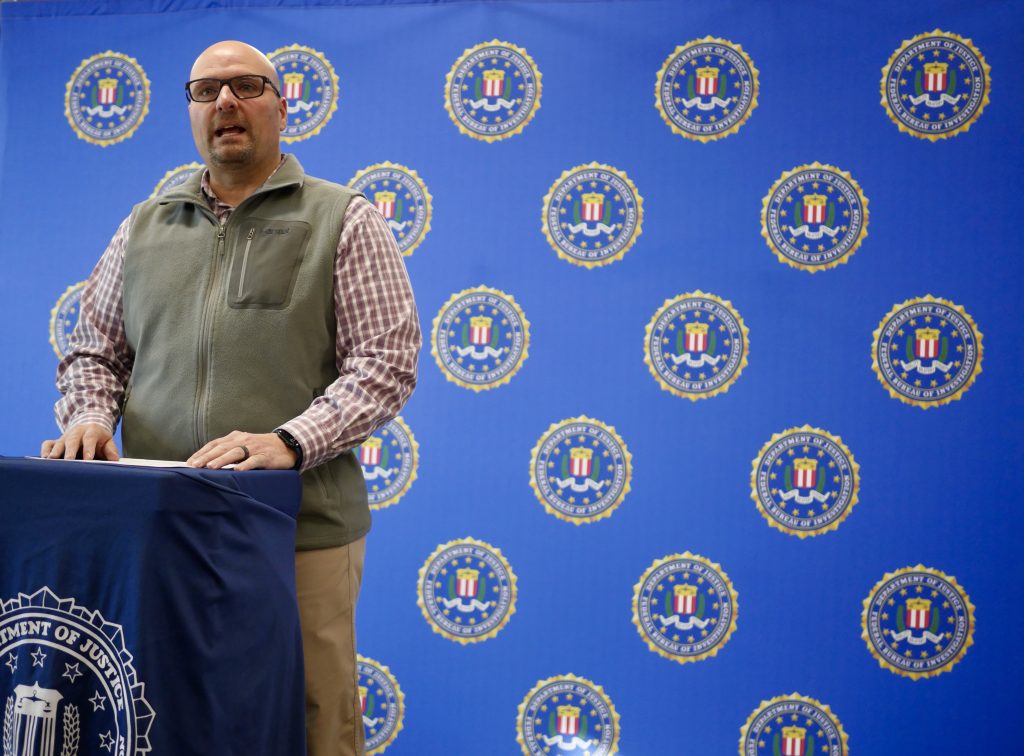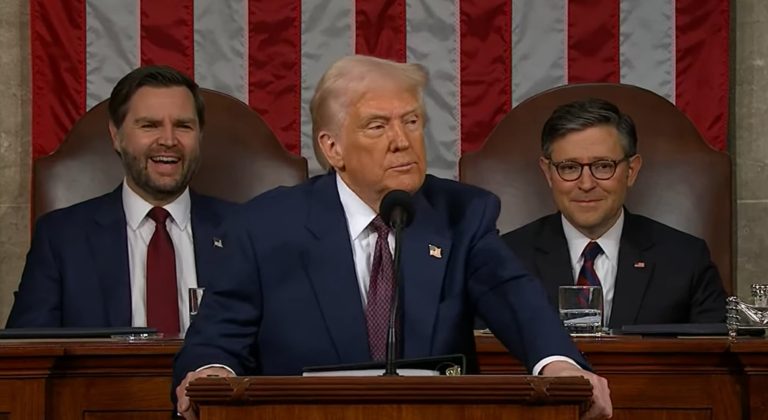Podcast: Play in new window | Download | Embed
The FBI just launched a new project to collect more data about the Missing and Murdered Indigenous People (MMIP) crisis.
Wyoming Public Radio’s Hannah Habermann reports on the announcement at the Wind River Reservation made last week.
The FBI is the primary law enforcement agency that investigates serious crimes on the Wind River Reservation – and they’re trying to collect more information about those who’ve gone missing or have been murdered.
The agency set up a new designated email account – WYMMIP@fbi.gov – to better understand what the crisis looks like in the state and what resources the agency can contribute to solving cases.

FBI agent Leonard Carollo says he recognizes that tribal members have not always been comfortable working with the agency.
“We recognize these historical barriers and want to do all we can to improve the flow of information.”
Agents and other FBI employees will collect information – like new details or cases that were never reported – for the next ninety days. Then, they will research and investigate the tips.
The FBI also plans to host in-person information-gathering sessions on the Reservation.

Nesbett Courthouse in downtown Anchorage, Alaska, where the trial is taking place. (Courtesy Lex Treinen / Alaska Public Media)
The Anchorage murder trial of Brian Smith enters its second week.
The 52-year-old man is accused of killing Kathleen Henry and Veronica Abouchuk, two Alaska Native women from the rural communities of Eek and Stebbins who had experienced homelessness in Anchorage.
Last week during jury selection, potential jurors were asked if they could handle seeing gruesome photos and video that Smith allegedly shot of the one of the killings on his cell phone.
A woman testified last week that she stole the phone from Smith’s truck.
At the time, she said she lived in a tent and was riding around town with Smith “on a date”.
In 2019, the woman turned in an SD card to police and told them she found it on the ground.
But in court last week, she admitted to stealing Smith’s phone from his truck and copying the video to an SD card, which she turned over police, after her therapist encouraged her to do so.
As the trial finished its first week, defense attorneys argued the footage shouldn’t be shown to the jury, because so many different stories have been told about the source of the video.
Before trial recessed last week, the judge asked the prosecution to explain more about how police obtained the video and how it was handled.
As of now, the judge plans to allow the jury to see the footage in which Smith does not appear, but is heard telling his victim that he plans to kill her.
Investigators say they recognized his South African accent from a prior investigation involving Smith, which led to his arrest.
 The federal government is launching a new behavioral health call line for students and staff at tribal schools.
The federal government is launching a new behavioral health call line for students and staff at tribal schools.
The Mountain West News Bureau’s Kaleb Roedel has more.
The line is available 24 hours a day, 7 days a week and funded by the Bureau of Indian Education.
The agency says the line will mostly be staffed by Indigenous counselors who have experience serving Native communities.
They will offer both immediate individual crisis support and scheduling for virtual counseling.
Emily Haroz is with the Johns Hopkins Center for Indigenous Health.
She says this added support comes at a critical time.
“Across the board, we see inequities and mental health related outcomes among Indigenous groups, particularly Indigenous youth. And so having something really tailored to those communities is really important in order to make sure that the care that’s provided is culturally congruent, and also accessible.”
The behavioral health line will serve more than 180 tribal schools.
Get National Native News delivered to your inbox daily and stay up-to-date on 2024 Native Vote. Sign up for our daily newsletter today.



